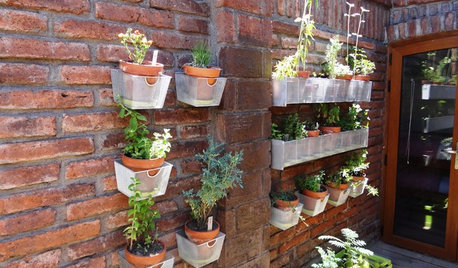'Sallet' onions...
Hello All,
I posted this question in the Heirloom Gardens forum and it was sugested that I post it here. I have gotten some good information from the original post, but still have not found an answer that makes me know that it is exactly what I am looking for. Here is the original post:
Hello All,
First of all, let me say that I did not misspell Shallot! I meant Sallet (pronounced sal-it) by my father!
Next, let me say that I don't know if this is the right place for this or not, but being an "old timey" kind of onion (according to dad), I thought the Heirloom Plants & Gardens forum as good of a place to start as any!
My dad (66 yrs.) says that when he was growing up here in NW TN, his father had a patch of multiplying onions that grew along one of the fence rows on their place. No special care was ever given to them. They grew and spread on their own... right among the Bermuda, Johnson and other grasses. He says that noone ever pulled or dug them up. Instead, he or his mother would simply gather a handfull of the green tops together and cut them off even with the ground surface. And he insists that these were not just a "regular" garden variety onion.
At first, I told him that it sounded to me like the "wild" onions that infest our yards every spring and fall. But daddy quickly assured me that these "Sallet" onions and the "wild" onions were not one in the same. Here, the "wild" onions to which I refer stand about 4"-5" tall, and have an EXTREMELY pungent odor about them; especially when cut or mashed. And even if you could get past their breathtaking, overpowering taste, you'd get one-heck-of-a bellyache if you ate them!
According to daddy, the "Sallet" onions only grew about 6"-7" tall and had an extremely mild flavor. Once, his boyish curiosity got the best of him and he pulled up a couple of the adult onions. He said that the bulbs were no bigger around than the size of the stem at ground level. He also says that they almost exclusively ate them with their "sallet" (turnip greens, mustard greens, and so on) and figured that this was the reason that his dad always referred to them as "Sallet" onions. One time, he ask his dad what kind of onions they were, and his father replied, "Their Sallet onions... that's all I know."
I don't know if this rings a bell with any of you, but if it does and you have some light to shed as to the kind of oinion that this may have been and where I might obtain some (for growing), I would greatly appreciate it. Dad's not in the best of health, and I'd sure like to find him some of his "Sallet" onions while he can still enjoy them.
Thanks in advance for any help that you might be able to lend.
Robert
It has been offered that the onions of my father's memory must be potato onions. However, my father insists that he pulled some up after they were allowed to mature and they had a WHITE bulb that was no biger than the neck of the plant at ground level. Also, he told me that he didn't know about mulitplying from the bulbs, but knew for a fact that once mature, the onions would set what he called a flower or pod at the top of the stems. He said that if they were left undisturbed, the pods would rupture and drop their SEEDS on the ground. Today he told me that as a kid, he had seen his father collect the SEEDS and pass them on to friends and family members.
Any help that you might provide would be greatly appreciated.
Thanks,
Robert







coho
beebizOriginal Author
Related Professionals
Fillmore Landscape Architects & Landscape Designers · Piqua Landscape Architects & Landscape Designers · Belvedere Park Landscape Contractors · Edinburg Landscape Contractors · El Mirage Landscape Contractors · Ramsey Landscape Contractors · Wailuku Landscape Contractors · Hueytown Landscape Contractors · Anchorage General Contractors · Greenville General Contractors · Noblesville General Contractors · Toledo General Contractors · Waianae General Contractors · Waipahu General Contractors · Walnut Park General Contractorspaquebot
new2gardenfl
beebizOriginal Author
oogy4plants
mercury12
beebiz43
mercury12
beebiz43
oldroser
beebiz43
negi
savannarose
barbe_wa
Chemocurl zn5b/6a Indiana
mamagardener06
butterflylion
soil_lover